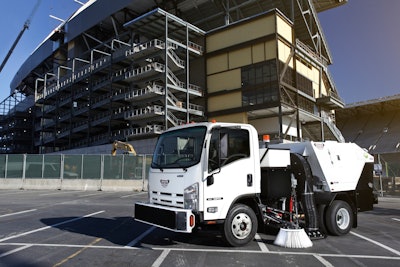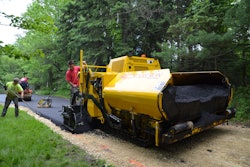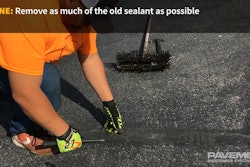
Adapting to seasonal variations in driving conditions is a critical part of maintaining a vehicle fleet. In the harsh winter months, your vehicles probably sustained some of the typical wear and tear caused by cold weather driving, and though it’s hard to believe, it’s already time to start thinking about the risks associated with warm weather driving. Follow these simple but important tips to get your fleet over the winter wear and ready to take on the heat.
Winter Recovery
Because engines have to work harder in the cold, it’s likely that coolant and other fluids were depleted in the winter months. Top off and regularly check anti-freeze levels, as well as brake, transmission and power-steering fluids in every vehicle. Remind your drivers that fluid checks should be done before a shift begins and never after or during when the engine is still hot.
If your trucks were operating with winter tires, switch them out for all-season tires. Assuming they are still in good condition, thoroughly clean the winter tires and store them in a cool, dry place. If the tires are unmounted on rims, it’s preferable to store them upright, rather than stacked, to minimize wear during storage. If they are mounted, hang them to maximize storage space.
Preserving Fuel Economy
Fuel prices tend to go up in the summer, making it especially important to monitor and maximize fuel economy. Regularly check tire pressure to ensure optimum PSI levels. According to the Department of Motor Vehicles, properly-inflated tires operate at approximately 3% better fuel efficiency than improperly-inflated tires. Keeping up on other regular maintenance, such as oil changes and filter replacements, will also ensure that your vehicles operate at maximum fuel efficiency for warm conditions.
Avoiding Cosmetic Issues
Even if wear on your vehicles is only cosmetic, this reflects negatively on your company. Keep the fleet looking its best by thoroughly washing away winter salt build up. Whenever possible, encourage drivers to park vehicles in the shade, preserving both the paint and the interior. Avoid vinyl cracking and other interior damage by using a sun shade on the windshield.
Overheating and Blowout Prevention
Warmer temperatures cause tire air to expand, compromising fuel economy and vehicle handling and increasing the risk of blowouts and collisions. Be sure to conduct a thorough brake check on every machine, as brakes also tend to be overworked in winter driving. In addition to all of the other maintenance tips we’ve discussed, make sure all drivers are up to speed on proper company procedures for breakdowns and accidents, and provide retraining sessions if necessary.
Information for this article was provided by NiteHawk Sweepers, www.nitehawksweepers.com; 800-448-9364.


![Lee Boy Facility 2025 17 Use[16]](https://img.forconstructionpros.com/mindful/acbm/workspaces/default/uploads/2025/09/leeboy-facility-2025-17-use16.AbONDzEzbV.jpg?auto=format%2Ccompress&fit=crop&h=100&q=70&w=100)







![Lee Boy Facility 2025 17 Use[16]](https://img.forconstructionpros.com/mindful/acbm/workspaces/default/uploads/2025/09/leeboy-facility-2025-17-use16.AbONDzEzbV.jpg?ar=16%3A9&auto=format%2Ccompress&fit=crop&h=135&q=70&w=240)








